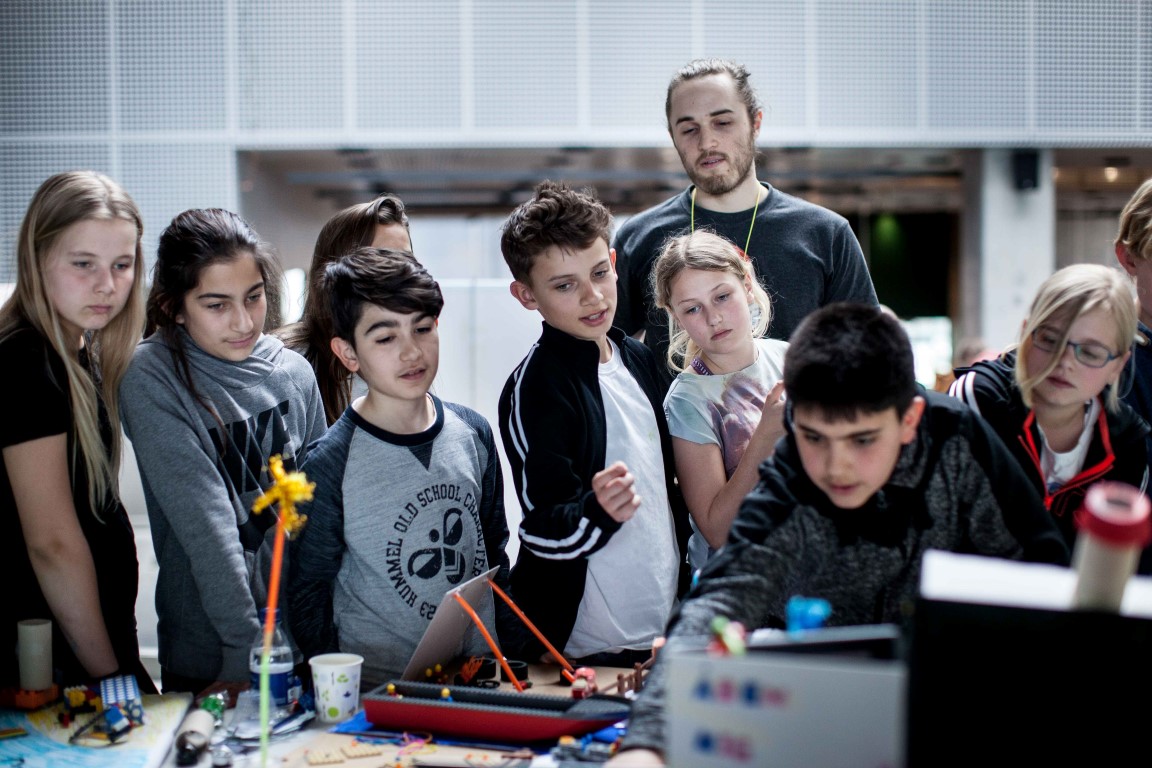[et_pb_section admin_label=”section”][et_pb_row admin_label=”row”][et_pb_column type=”4_4″][et_pb_text admin_label=”Jenkins” background_layout=”light” text_orientation=”left” use_border_color=”off” border_color=”#ffffff” border_style=”solid”]
It might seem trivial to say that in order to play, you have to participate in some way.
The apparent triviality of that statement changes as soon as you start looking a bit deeper at the meaning of participating, though. Participation, playful or not, is indeed a contested and complex phenomenon and ” we must thus keep in mind the multiple motivations for engaging in participatory processes, and this involves understanding cultural participation as a multidimensional concept” (Reestorff, Fabian, Fritsch, Stage, Stephensen).
Looking to a popular definition, Henry Jenkins and compatriots think of “participatory culture” like this:
A participatory culture is a culture with relatively low barriers to artistic expression and civic engagement, strong support for creating and sharing creations, and some type of informal mentorship whereby experienced participants pass along knowledge to novices. In a participatory culture, members also believe their contributions matter and feel some degree of social connection with one another (at the least, members care about others’ opinions of what they have created).
As I mentioned in “The Play Community“, this covers a lot of what we’re hoping to achieve with CounterPlay. When seen like this, participation requires more than just being a more or less active attendant at any kind of event or activity or play session. You have to express yourself, make contributions, become part of shaping a meaningful community and care about the contributions of others.
[/et_pb_text][et_pb_image admin_label=”Image” src=”http://www.counterplay.org/wp-content/uploads/2016/06/IMG_1279-Medium.jpg” show_in_lightbox=”off” url_new_window=”off” use_overlay=”off” animation=”left” sticky=”off” align=”left” force_fullwidth=”off” always_center_on_mobile=”on” use_border_color=”off” border_color=”#ffffff” border_style=”solid”] [/et_pb_image][et_pb_text admin_label=”Carpentier” background_layout=”light” text_orientation=”left” use_border_color=”off” border_color=”#ffffff” border_style=”solid”]
There is an underlying theme at play, namely that you must have agency to really participate. As argued by Nico Carpentier, “the key defining element of participation is power”:
The debates on participation in institutionalized politics and in all other societal fields, including media participation, have a lot in common in that they all focus on the distribution of power within society at both the macro- and micro-level
This is to say that if there is not a shift of power, if those expected to participate are not powerful (to a never precisely defined extent), “at some point participation simply stops being participation”. Participation, then, should not be used as a glossy term to hide the fact that often, there is no real power for the socalled participants. Exactly the same can be said about play and playfulness. Do you want to cultivate a playful culture in the workplace? Well, it can’t be sugarcoating (like ping-pong tables or other gimmicks), it needs to be embedded in the fabric, and it requires actual power and decision making to be put in the hands of those you expect to play along.
If we stay with Carpentier a little bit longer, he covers another shared trait between play and participation (without mentioning play, that is):
These kinds of reflections allow participation to be seen as invitational, which implies that the enforcement of participation is defined as contradictory to the logics of participation, and that the right not to participate should be respected.
Participation can’t be forced, but only invited. Most play scholars agree with Carpentier, and often points back to Huizinga’s “Homo Ludens” when doing so:
First and foremost, then, all play is a voluntary activity. Play to order is no longer play: it could at best be but a forcible imitation of it. By this quality of freedom alone, play marks itself off from the course of the natural process
[/et_pb_text][et_pb_image admin_label=”Image” src=”http://www.counterplay.org/wp-content/uploads/2016/06/IMG_1510-Medium.jpg” show_in_lightbox=”off” url_new_window=”off” use_overlay=”off” animation=”left” sticky=”off” align=”left” force_fullwidth=”off” always_center_on_mobile=”on” use_border_color=”off” border_color=”#ffffff” border_style=”solid”] [/et_pb_image][et_pb_text admin_label=”Henricks” background_layout=”light” text_orientation=”left” use_border_color=”off” border_color=”#ffffff” border_style=”solid”]
All of this, the voluntary participation and the actual agency is also covered in Thomas S. Henrick’s most recent book, “Play and the Human Condition“, where he “celebrates the role of agency in human affairs”:
play events capitalize on people’s capacities for creativity, or externalization. Nothing exists— at least, nothing that is playful in character— until the participants decide to invest the moment with this quality. When they withdraw that energy and enthusiasm, the moment dies. Play makes people aware of their capacities for social agency.
To me, this is the essence of play: to be able to playfully participate, and not just in more or less arbitrary acts of play, but in society and life as a whole.
[/et_pb_text][/et_pb_column][/et_pb_row][/et_pb_section]

Leave a Reply